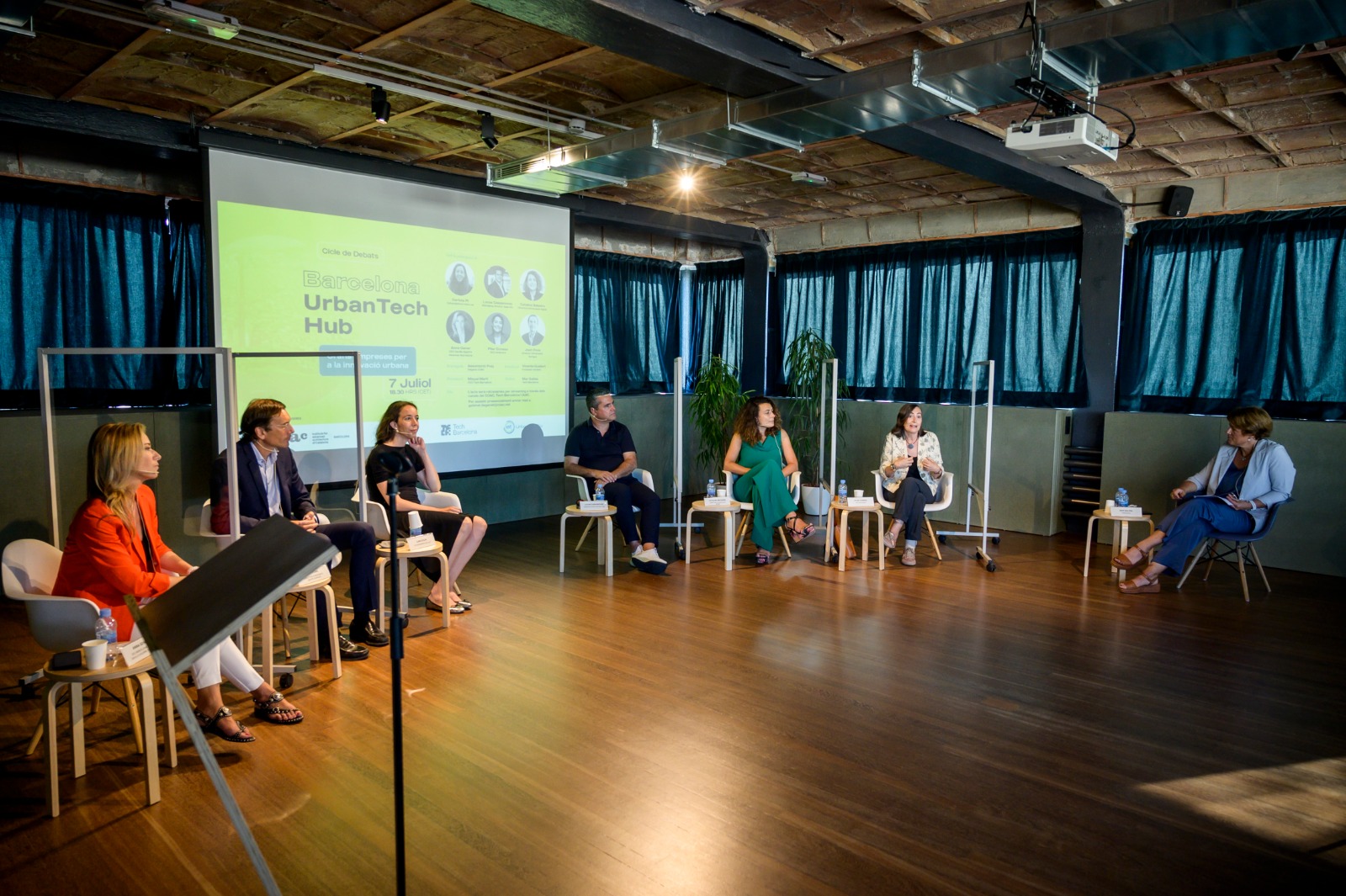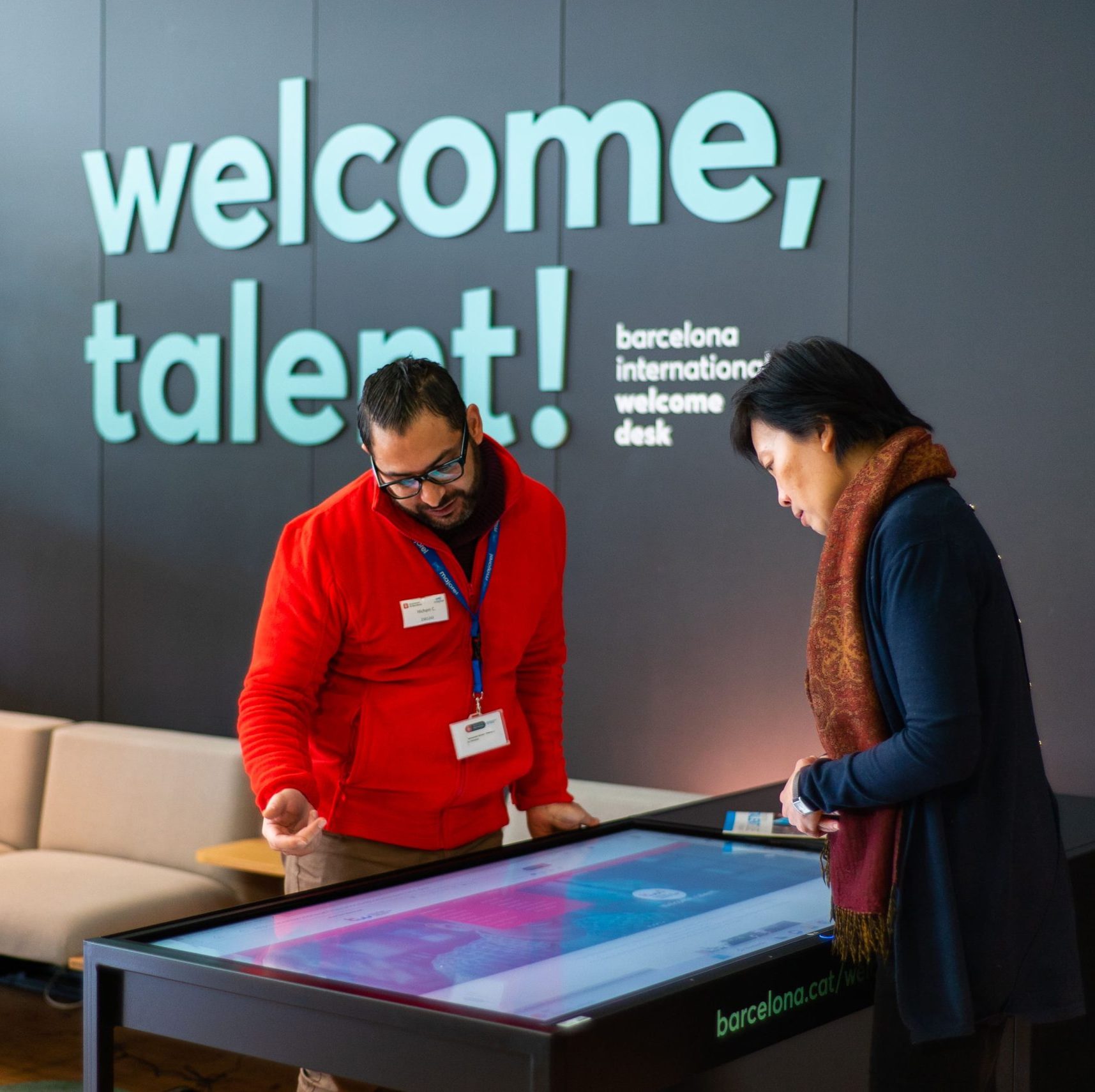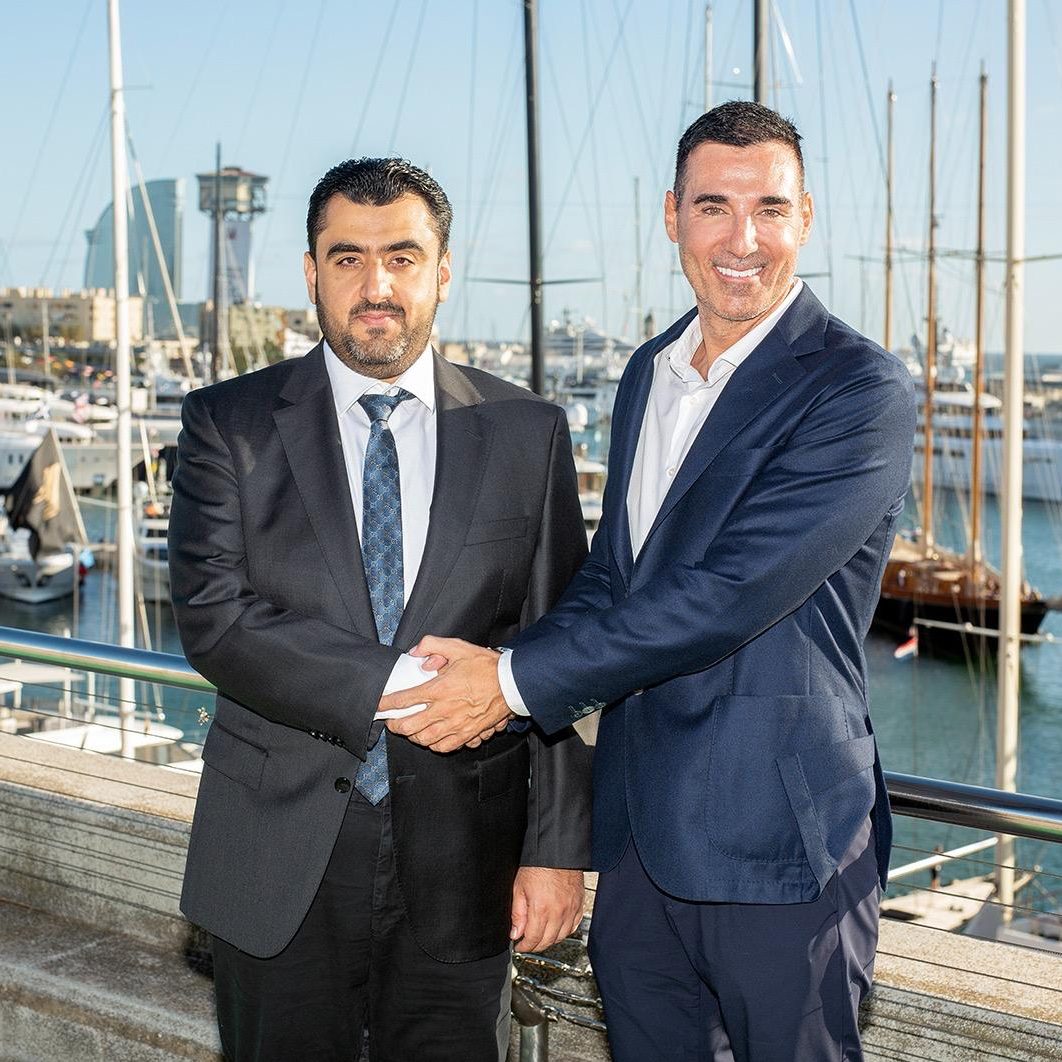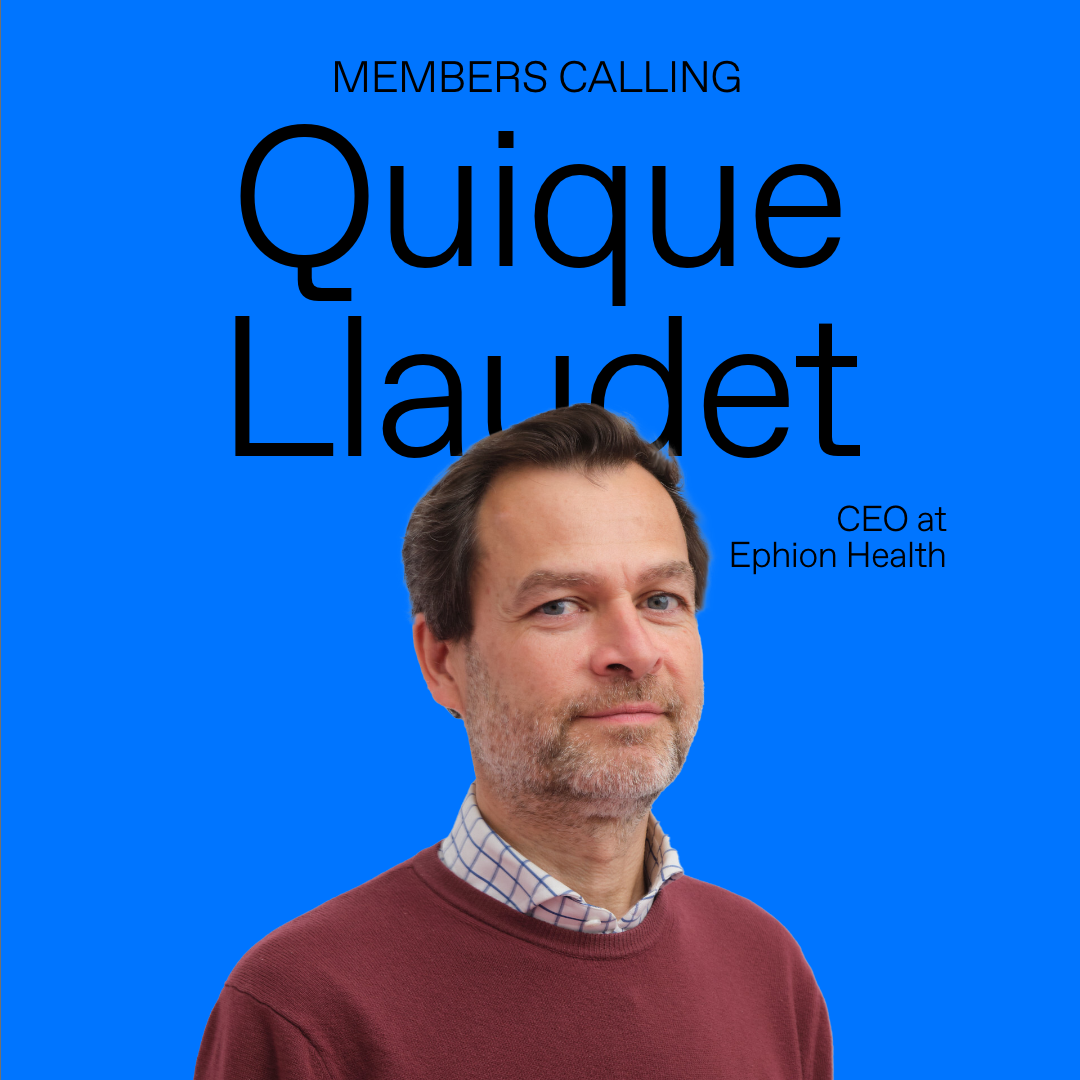Noticias
Barcelona Urbantech Hub claim the role of large companies in leading urban innovation

- Tech Barcelona, in collaboration with the Institut d’Arquitectura Avançada de Catalunya (IAAC) and the Col·legi d’Arquitectes de Catalunya (COAC), is holding the second debate of the cycle to promote the Urbantech Hub.
Barcelona Urbantech Hub, the platform to bring together institutions, companies and professionals that promote sustainable urban transformation through technology, claims the role of large corporations to lead the innovation that must define the new model of sustainable city.
The Barcelona Urbantech Hub is a project led by the Institut d’Arquitectura Avançada de Catalunya (IAAC), Tech Barcelona and the Col-legi d’Arquitectes de Catalunya (COAC). The second session of the cycle of debates to promote the Hub highlighted the need for large companies to promote projects that connect new technologies with urban planning, architecture, mobility and energy.
The conference, held on Wednesday at the COAC, was attended by Carlota Pi, co-founder of Holaluz; Lucas Casanova, managing director of Seat Mo; Catalina Balseiro, director of innovation at Aigües de Barcelona; Anna Gener, CEO of Barcelona Grupo Savills Aguirre Newman, Pilar Conesa, CEO of Anteverti and Joan Pons, director of innovation at Sorigué.
Miquel Martí, CEO of Tech Barcelona, stressed during the inauguration of the event that “the Urbantech Hub integrates actors that until now have been working separately and others that until recently were barely counted on, such as startups. It is a model of transversal collaboration that we must continue to promote”. The dean of the COAC, Assumpció Puig, stressed “the need to connect the innovation that takes place within large companies, which is the driving force behind social progress, with the talent and potential that is being developed at universities. For his part, Vicente Guallart, founder of the IAAC, insisted on the need for an “optimistic vision in the face of the challenge of building the model of innovative and sustainable city that will define the future in the next 50 years”.
Carlota Pi, co-founder of Holaluz, presented the opportunities for transforming the energy consumption model and the potential of cities. “At Holaluz we have started the rooftop revolution, which should not be confused with self-consumption. It is about converting roofs into a renewable energy plant, without involving a large investment”, said Pi.
Regarding the impact of mobility on the transformation of cities, Lucas Casanovas, managing director of Seat Mo, defended an urban planning model that allows for “reduced mobility, smaller vehicles, less polluting, that make less noise and allow pedestrians to gain more space”. Pilar Conesa, CEO of Anteverti, added that the pillars that will mark the urban transformation in Barcelona are the relationship with public space, construction, materials and mobility.
For her part, Anna Gener, CEO of Barcelona Grupo Savila Aguirre Newman, valued the level of demand currently being set by public administrations and institutions in terms of sustainability, which has already become a priority from the point of view of investors. “In three years there has been a change in awareness of climate change and it is a trend that is here to stay. If we can have better, more profitable buildings, we will also have better cities”.
The debate also addressed the challenges of public-private partnerships in the process of urban transformation. In the words of Catalina Balseiro, Director of Innovation at Aigües de Barcelona, “water is a vital asset for economic and social development and the future of the city. We work along two lines: efficiency and increasing the availability of alternative resources such as reuse”.
For his part, Joan Pons, director of Innovation at Sorigué, assured that it is necessary to apply technology and artificial intelligence with the aim of making “preventive” decisions in terms of “sustainable, industrialised construction and safety”.



